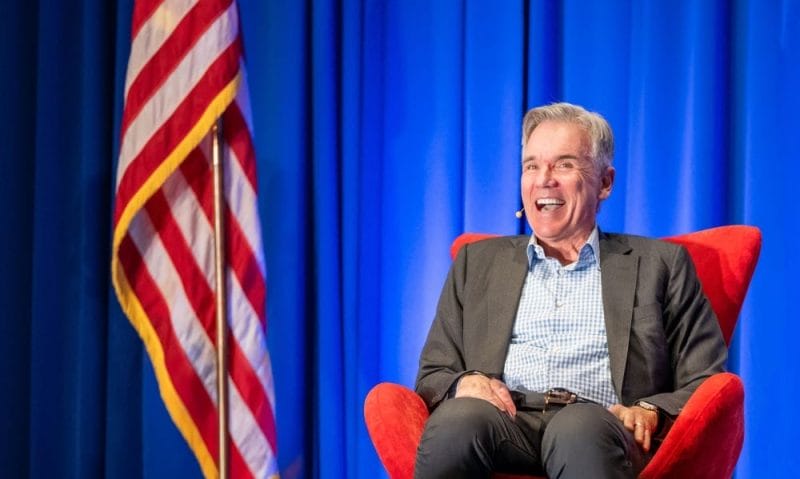A few weeks ago, Tiger Woods walked away with his 5th Masters Tournament – his first title after a long and grueling 11-year dry spell. This win was a major comeback for him after dealing with not only the loss of his reputation due to multiple episodes of adultery and DUI arrest because of painkillers, but also 4 back surgeries that left him unable to walk, much less play golf – injuries that appeared to be career-ending.
I wonder if Nike will jump on the winning Tiger bandwagon and rerun the campaign they created back in 2013 promoting Tiger’s often-repeated catchphrase, “Winning takes care of everything.” That commercial generated a LOT of Internet troll heat from people who thought it wildly inappropriate in light of Woods’ marital transgressions and sex and drug addictions. They argued that “winning” at golf doesn’t forgive ALL, doesn’t FIX everything. And to a certain extent, they’re right. Tiger went from being a champion who had it all – a model wife, beautiful healthy children, money, fame, sponsors and an incredible career – to becoming the shameful butt of multiple jokes. (Did you hear Tiger changed his name to Cheetah?) But the biggest reason for his fall from grace? He stopped winning. Sponsors, promoters, manager can tolerate a LOT of misbehavior when you’re a cash cow. Once that well dries up? Well…
Now it appears he’s cleaned up his life and he’s back on track, winning again. Has he learned his lessons from the past, never to be repeated again? A new and repentant Tiger? Who knows. But I do know this: of all the things he could have done to get his old life back, the BEST thing, the smartest thing, the most surefire path to redemption was to start winning again. As the saying goes, money won’t buy you love, but it WILL buy you a mansion, a yacht and a Lamborghini, and then you’ll have to beat love off with a stick. There’s a lot of truth to that, like it or not.
This concept, that winning can make wrongs right and “fix” transgressions, enrages a lot of morality objectors. It is possible to be thrown in jail one year, only to be celebrated on the covers of major magazines and on TV shows the next. Just ask Martha Stewart or Robert Downey Jr. It’s also possible to be an arrogant, ruthless, unkind a-hole and be one of the richest, most celebrated humans on this earth. Elon Musk is constantly getting himself in hot water, from smoking pot during a podcast interview to getting sued for fraud by the SEC. Bill Gates, known as a kind-hearted philanthropist, was a ruthless competitor, using his power to threaten suppliers into submission and his “embrace, extend and extinguish” strategy to crush open-source technologies. Steve Jobs was incredibly temperamental and unforgiving, verbally assaulting and shaming people who worked for him in front of their peers on a regular basis. I have had several private interactions with wealthy and famous people who were extremely rude, ungrateful and even downright whiny – breaking their promises and agreements, bullying us and threatening to walk offstage if their petty demands weren’t met. Behavior that surprised me, given their obvious success. Why did/do people tolerate such behaviors? Because they’re all WINNING, specifically at the game that matters the most: money-getting. So, a few things to keep in mind…
First, being seen as a winner is a huge strategic advantage in business. Public attention, money, respect, authority and celebrity all flow to those who are seen as being at the top of their game. To a certain extent, it can be faked – but that’s not a sustainable, long-term strategy, and eventually you’ll be found out and torn to shreds by those you attempted to dupe. And regaining your credibility will be a hard-won, if not impossible, battle.
That’s why publishing books and articles, public speaking and promoting your growth and even small successes are key to being seen as “winning,” along with publishing news of growth and expansion, big contracts won, awards and industry recognition, community involvement and associations with celebrities and other successful people. You have to TELL people you’re winning for them to know that you are.
As an obvious opposite, it’s very, very dangerous to show weakness and reveal that you’re losing. Who the hell wants to work for a loser, or do business with one? No restaurant can survive for long if the parking lot is consistently empty on a Friday and Saturday night. Eventually, everyone asks themselves why and disassociates. Here in Franklin, Lifetime Fitness came to town, sucking up all the business to be had by every gym in the area. One of the gyms, Prairie Life Fitness, recently and suddenly shuttered their doors with little notice, even though they had a 12-year jump on Lifetime. Problem is, when you walked into Prairie Life it was NEVER busy (one of the reasons I went there). There was no energy in the place. When you walked into Lifetime, EVERYONE was there, parking lot full 24/7/365. People sense distress and pull away from it.
I see a lot of small and stupid IT firms posting things on Facebook that reveal they are losing (or at least make them appear to be), from complaining about employees and how difficult business is, to their frustration with troubled clients and even personal and financial struggles. They’ll post questions about how to negotiate a contract or deal with a wayward client – or worse, about how they are stressing over money, their health, overwhelm, etc. The world is watching. In the wild kingdom, signs of weakness trigger large predators to attack. Other “loser” signals include being cheap about the delivery of your services, LACK OF GROWTH, sloth in expanding your offerings, zero marketing, YOU the owner continually “doing it all,” and the lack of drive and energy in you, the CEO. If you get tired and lose your drive to WIN, who on earth would want to come work for you, much less hire you? You are free to not like this, but it is how the world works. If you’re honest, that’s often how you make decisions about who to work with, who to hire, who to associate with. You can dislike the laws of gravity too…but just try to deny them.















